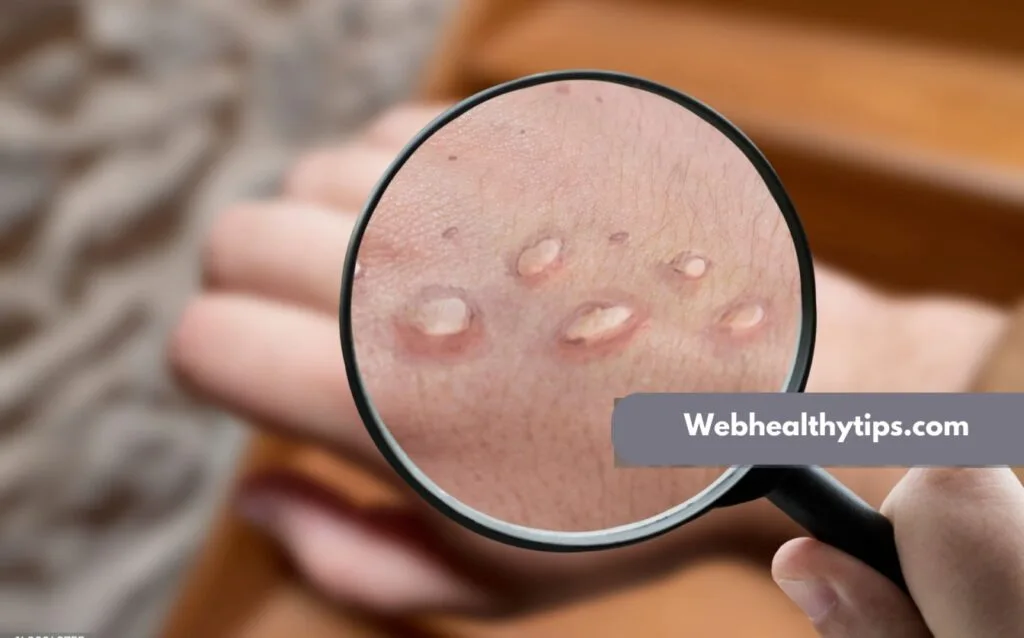Since the M-pox outbreak—previously known as monkeypox—grew to become a worldwide health emergency, it has attracted a lot of attention. Previously believed to be a rare and mostly isolated virus, the ailment has spread to other nations, causing widespread concerns among health organizations. This article examines the reasons behind the Mpox outbreak, how it affected world health, and How global health organizations orchestrated their reaction.
Mpox: What Is It?
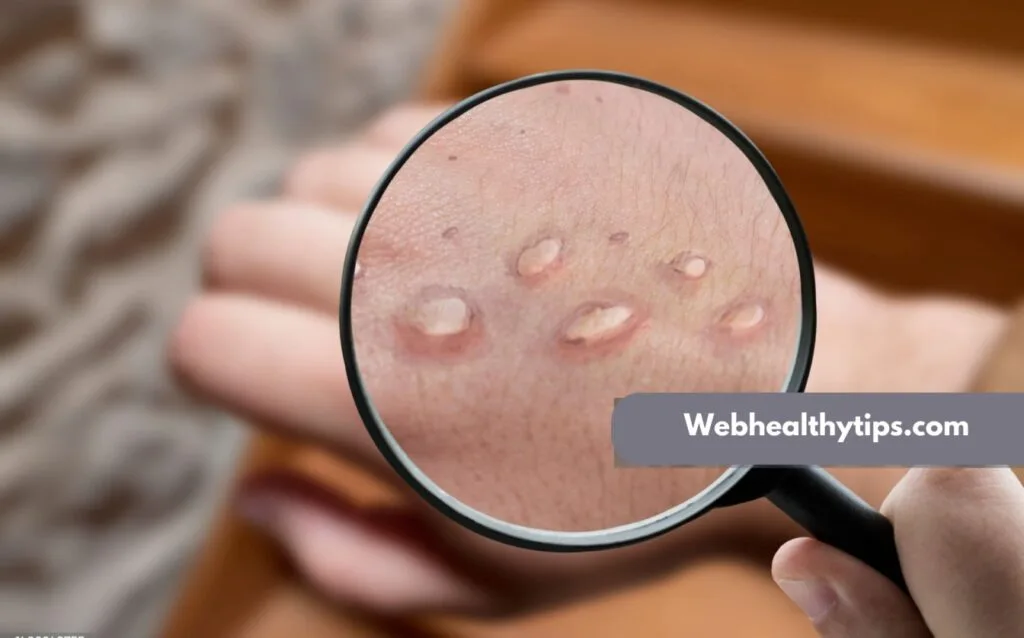
The virus that causes mpox is the monkeypox virus, which is related to the smallpox virus. In spite of its name, mpox is not just a monkey problem. Despite the fact that it was initially identified in lab monkeys in 1958, rodents and other small animals are believed to be its natural hosts. The virus has already been found in a number of African countries, primarily in those with substantial rainforests.
As a zoonotic disease, mpox can be transmitted from animals to people. The symptoms of the illness are comparable to smallpox even though it is typically less severe. However, recent outbreaks have raised concerns due to the virus’s mutation and expanding spread..
Where the Mpox Virus Came From?
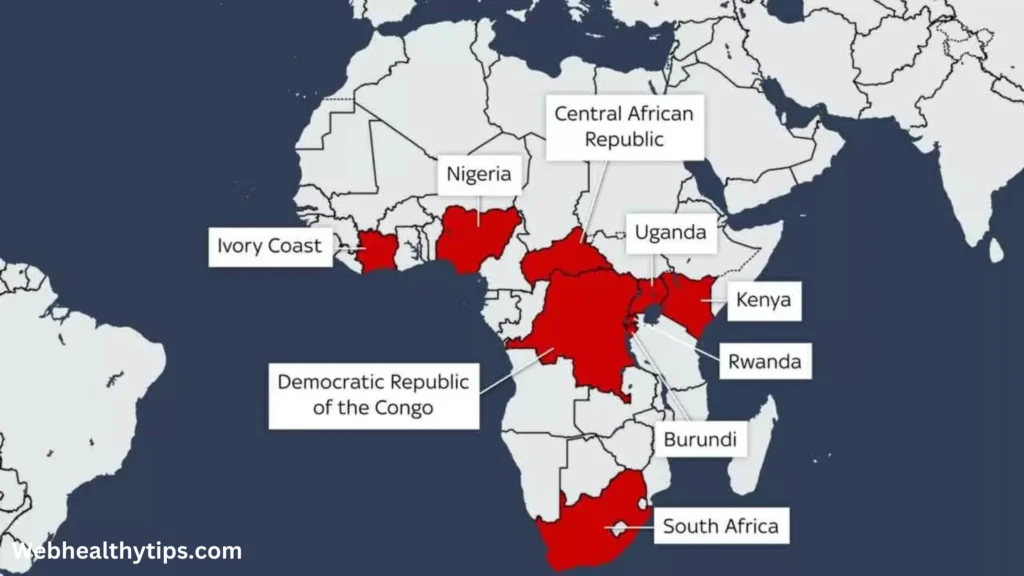
The endemic monkeypox virus was initially discovered in Central and West and South Africa. First reports of human cases were made in the Democratic Republic of the Congo (DRC) in 1970. The virus usually infects humans after moving from wildlife to humans, though this is not always the case.
Up until recently, outbreaks outside of Africa were extremely unusual; nevertheless, greater travel and global interconnectedness have facilitated the virus’s international spread. Experts surmise that the virus has spread from wildlife reservoirs to human populations as a result of deforestation, climate change, and the trafficking in wildlife.
How Is m-pox Spread?
There are several ways that mpox can spread, including:
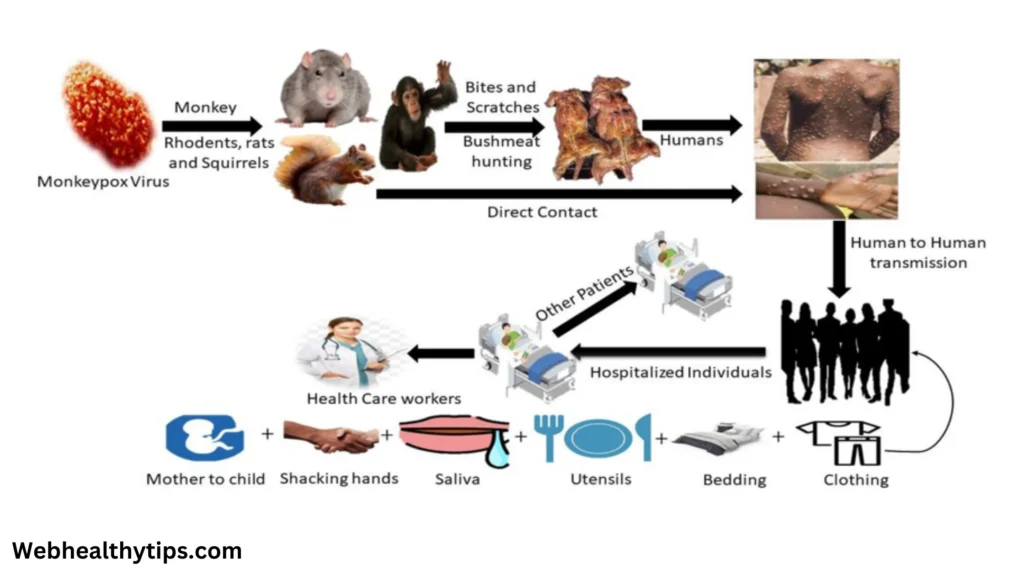
- Direct contact with infected animals: The virus is frequently spread through handling or eating bushmeat from infected animals.
- Transmission from person to person: The virus can be transferred between people by respiratory droplets, skin-to-skin contact, or contact with contaminated things such as clothing or bedding.
- Contact with bodily fluids: Transmission can occur through close contact with an infected person’s bodily fluids, such as saliva or open sores.
Despite not spreading as quickly as highly contagious illnesses like COVID-19 or measles, mpox still offers a serious threat because due to the length of its incubation period and the range of ways it might spread.
M-pox symptoms
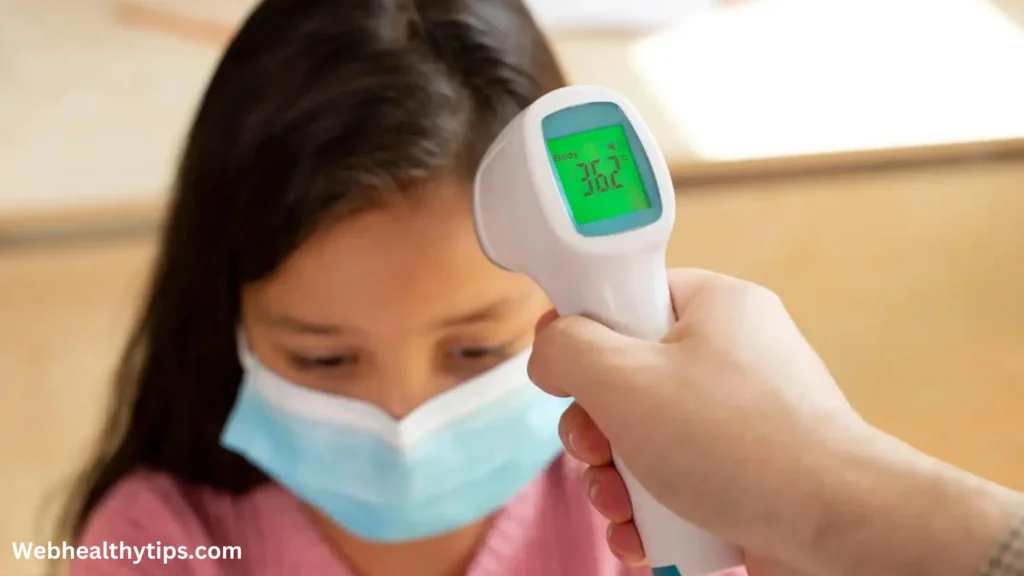
The symptoms of mpox usually appear 5 to 21 days after exposure and are frequently confused with those of other viral illnesses. Typical signs and symptoms include:
- Body High temperature
- Headache
- Aches in the muscles
- Weary
- enlarged lymph nodes
- Rash on the skin”s
The most noticeable symptom is the skin rash, which frequently begins on the face before moving to other areas of the body. The rash develops in many phases: flat patches, elevated bumps, fluid-filled blisters, and finally scabs.Serious cases can occur, especially in people with weakened immune systems, even though most patients recover in 2 to 4 weeks.
The Importance of the Global Health Emergency Declaration
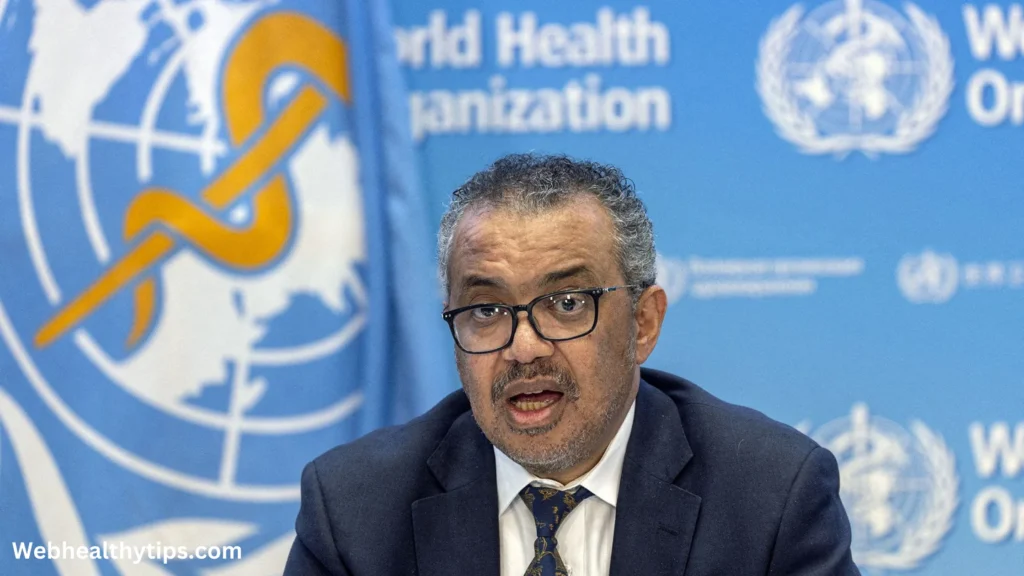
The World Health Organization (WHO) designated the Mpox epidemic as a Public Health Emergency of International Concern (PHEIC) in 2022. This is the highest level of global health alert and is used to diseases that pose a substantial risk to public health outside of the affected region.
Several considerations led to the decision to designate mpox as a global health emergency:
- Increasing case numbers: There have been thousands of confirmed cases of mpox worldwide, with cases reported in over 75 countries.
- Risk of more spread: The virus’s ability to travel to areas where it is not widespread has sparked worries about the impact on world health.
- Lack of worldwide readiness: During the current COVID-19 pandemic, several nations were ill-prepared to handle the unexpected outbreak of mumps.
Mpox’s Effect on World Health”s
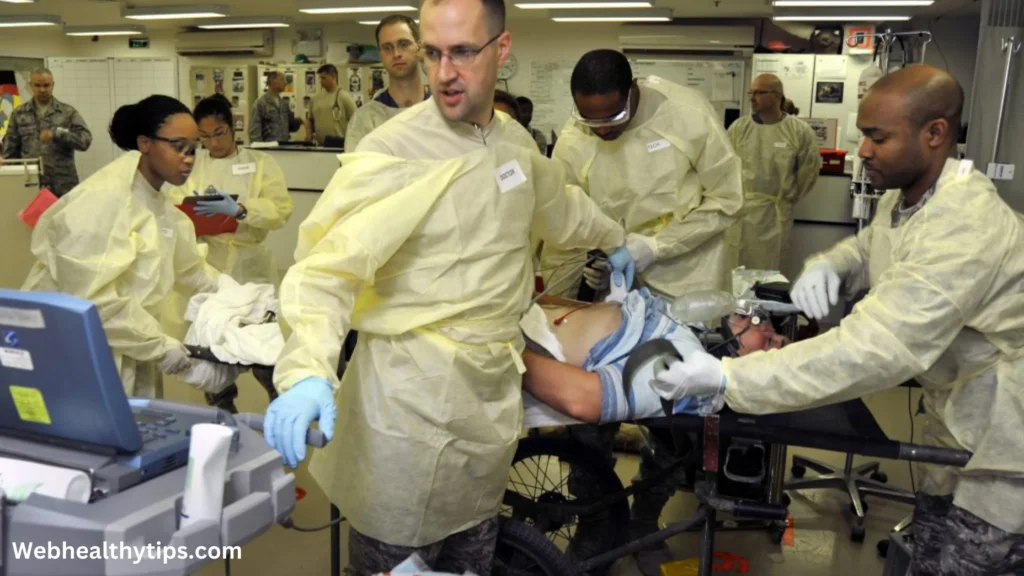
The global mpox outbreak has had a major impact on public health.
- Stress on Medical Systems
The mpox outbreak added to the strain already placed on healthcare systems by the COVID-19 pandemic. The testing, treatment, and isolation of patients required hospitals and clinics in the impacted areas to commit resources, further taxing the health system. - Public Misinformation and Fear
Like any disease outbreak, there was rapid dissemination of false information and public dread, which made the afflicted populace fearful and stigmatized the infected. Misinformation about the virus’s severity and spread led health groups to initiate public education efforts. - Upheaval in the Economy
Although the amount of economic disruption caused by MPOX was not as great as that caused by COVID-19, businesses that were affected included travel, tourism, and healthcare, as people were reluctant to participate in activities that raised their risk of exposure.
The Mpox Outbreak’s Most Impacted Countries
Among other parts of the world, cases of the mpox outbreak have been reported from Europe, North America, Asia, and Africa. The following are a few of the nations that have recorded the most cases:
- United States
- Spain
- Brazil
- United Kingdom
- South Africa
Historically, the virus has mostly plagued countries in Africa, but with the new epidemic, it has expanded to hitherto undiscovered places.
Mpox Prevention and Treatment
Prevention
A mix of personal safety measures and public health initiatives is needed to stop the virus from spreading. Important preventative techniques include:
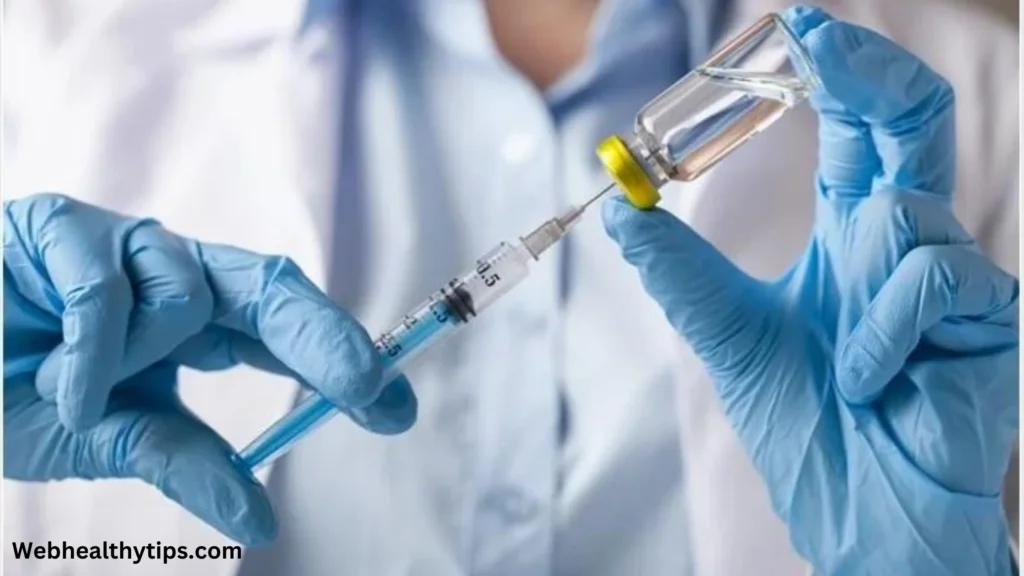
- Immunization: Vaccines designed to prevent smallpox, such as the JYNNEOS vaccine, have also been shown to prevent mpox. There is a surge in vaccination initiatives, especially for high-risk populations.
- Isolation of Infected Persons: Immediate identification and segregation of afflicted individuals aid in the prevention of additional transmission.
- Hygiene Practices: You can reduce the chance of transmission by washing your hands frequently, wearing protective clothing, and sanitizing surfaces.
Management
Although there isn’t a specific treatment for mpox at the moment, antiviral drugs like tecovirimat have shown potential in treating severe instances. Essential elements of supportive care include managing discomfort, preventing secondary infections, and maintaining fluid intake.
Reaction Worldwide to the Mpox Epidemic
Governments and international health organizations have taken a number of actions to limit the virus in response to the mpox outbreak:
- WHO Guidance: For the nations impacted by the outbreak, the WHO has issued guidance on case management, laboratory testing, and surveillance.
- International Cooperation: To exchange information, vaccination supplies, and treatment methods, governments from all over the world are working together.
- Public Health Campaigns: To inform the public about the virus and stress the importance of early detection and preventive measures, some nations have launched public health campaigns.
- The global implementation of the mumps vaccine has proven to be a crucial factor in managing the outbreak, particularly in populations that are at a higher risk.
- Future Readiness for New Health Hazards
The mpox pandemic highlights the significance of enhancing global health preparedness. Important lessons discovered consist of:
- Boosting Surveillance Systems: To quickly identify and address new dangers, nations need to make significant investments in reliable surveillance systems.
- Public Health Infrastructure: Improving public health infrastructure will be essential to preventing future epidemics from becoming global health emergencies, especially in low-income nations.
- Cooperation Among Nations: Containing outbreaks requires coordinated worldwide responses. International collaboration will always be crucial for vaccination distribution, data exchange, and research.
In summary
The rise in mpox cases has acted as a stark reminder that there is still a greater risk to global health from newly emerging infectious diseases. As the virus spreads to new places, governments and health organizations must act swiftly to contain the outbreak and mitigate its impacts. The world can overcome the challenges posed by infectious diseases, both present and emerging, by cooperating, educating the public, and launching timely immunization efforts.
Understanding and mitigating the dangers associated with the mpox outbreak is critical to protecting the global populace and ensuring that health systems are better prepared to address the next emerging threat.

